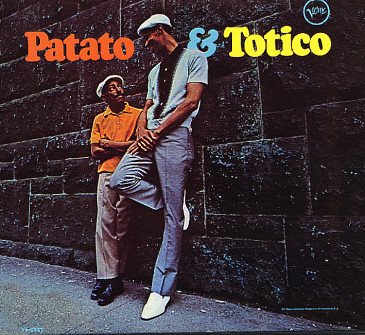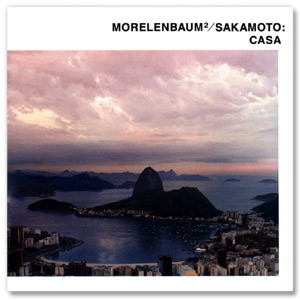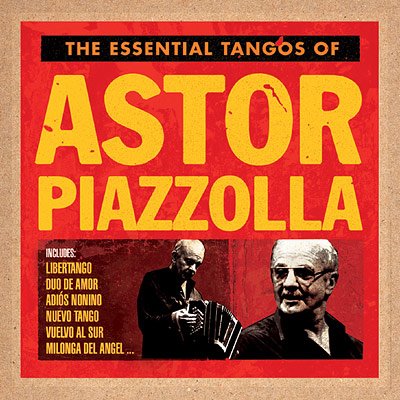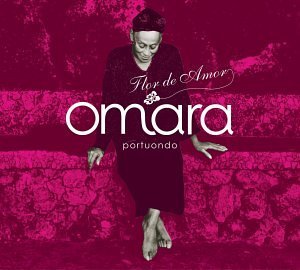Five Latin albums for a happy summer

1) PÉREZ PRADO: THE HITS
Prado, a Cuba-born pianist/bandleader who lived most of his life in Mexico, made music with so much energy it puts most rock and roll to shame. Almost as impressive as this is the sheer variety he manages to pull out of five or six simple elements: pounding Afro-Cuban beats, honking trumpets, an army of pencil-mustached guys shouting “Mambo! Mambo!”, banging piano interludes, trombones blatting all over the place, and Prado himself hollering “Ugh!” over and over again. Sometimes he does it romantic and swoony, other times the band digs in and you can’t help but think that they’re trying to burn the legs off all the world’s dancers. On this collection, there’s a whole bunch of gems in both modes, as well as a wild-assed surf guitar and organ duel, a Latinized version of the dwarfs’ marching song from Snow White, and–a treasure for sure–an appearance by the Barbaro del Ritmo himself, the great Beny Moré, on “Barbarabatiri”, a song that I’m too Anglo even to pronounce the title of. If you don’t have this collection already, you should buy it. You should then throw open all your windows and play it as loud as possible, pretending all the while that your home is a casino in Havana circa 1958.

2) PATATO & TOTICO
Another album by Cuban musicians, but as different from the Mambo as Muddy Waters is from Radiohead. Here we have some serious African-derived percussion (played by Carlos “Patato” Valdes) coupled with chant-style street singing (by Eugenio “Totico” Arango). It’s a pagan blend, an old-school Carribean ceremony as raw and sensual as these things are reputed to be. The sound isn’t for every occasion (this album will make your subdued dinner parties very strange), but when you want to get past the conventional and safe, there’s little finer. The vocals are in Spanish, but they might as well be singing in a long dead tongue. It’s amazing that this was recorded in 1968, in cold and crowded New York City, not a hundred years ago around a fire somewhere tropical. This recording is made all the more special by the presence of Cuba’s genius bassist, Israel “Cachao” Lopez and the inimitable tres guitar playing of the legendary Arsenio Rodriguez, the blind father of all modern Afro-Cuban music.
 3) MORELENBAUM(2)/SAKAMOTO: CASA
3) MORELENBAUM(2)/SAKAMOTO: CASAThis is an album of Antonio Carlos Jobim tunes played chamber-fashion, using just a cello, a piano and vocals. This approach pays off because of the brilliance and subtlety of the three musicians involved: pianist Ryuichi Sakamoto (an intimidating avant-gardist in other contexts) is delicate and graceful, while the husband-and-wife team of Jacques (cello) and Paula (vocals) Morelenbaum soar and whistle over this gentle foundation. This is bossa nova without any adornment; deeply Latin music that hews to no cliches or preconceptions of the genre. The simplicity of the instrumentation allows the magic of the songs to stand out in stark relief, proving once again that Jobim is one the 20th century’s most brilliant songwriters. This album sticks mainly to his less well-known songs and shows us that their relative neglect (at least in this country) has more to do with the abundance of riches he has already given us, rather than any issues of quality.

4) THE ESSENTIAL TANGOS OF ASTOR PIAZZOLLA
Piazzolla’s music is pure sex. Some of the time it’s frantic and lunging, some of the time it’s tender and sweet. It’s ecstatic, mournful, gentle, aggressive, piercing, embracing and lustful all at once. In his hands, the tango goes from being “mere dance music” to a kind of ultimate bedroom music. Earthy and spiritual, rough and refined, yearning and consummating—it’s all here. This CD is especially valuable because of its final track, “Vuelvo Al Sur”, a collaboration with hard-livin’ tango “crooner” Roberto Goyeneche. He sounds like he can’t decide whether to melt your heart or kick your ass. When I get married, this will be the first dance at our wedding. My wife will have no choice in this matter. I’m sorry, but that’s the way it has to be.

5) OMARA PORTUONDO: FLOR DE AMOR
Omara Portuondo is a singer who can, without stretching the truth a bit, be mentioned in the same breath as Ella Fitzgerald and Sarah Vaughan. Listening to her is like hearing the voice of the human spirit at its most vulnerable and sensuous. Her finest songs force you to realize that English is a clunky and feeble language for song, that perhaps our most essential moments are simply too great and subtle to be expressed in our silly, guttural tongue. With its swooning strings, angelic background harmonies, and lush production values, this feels like an album from another era, even though it came out only a few years ago. It’s timeless already, I guess. You need it, you really do.

